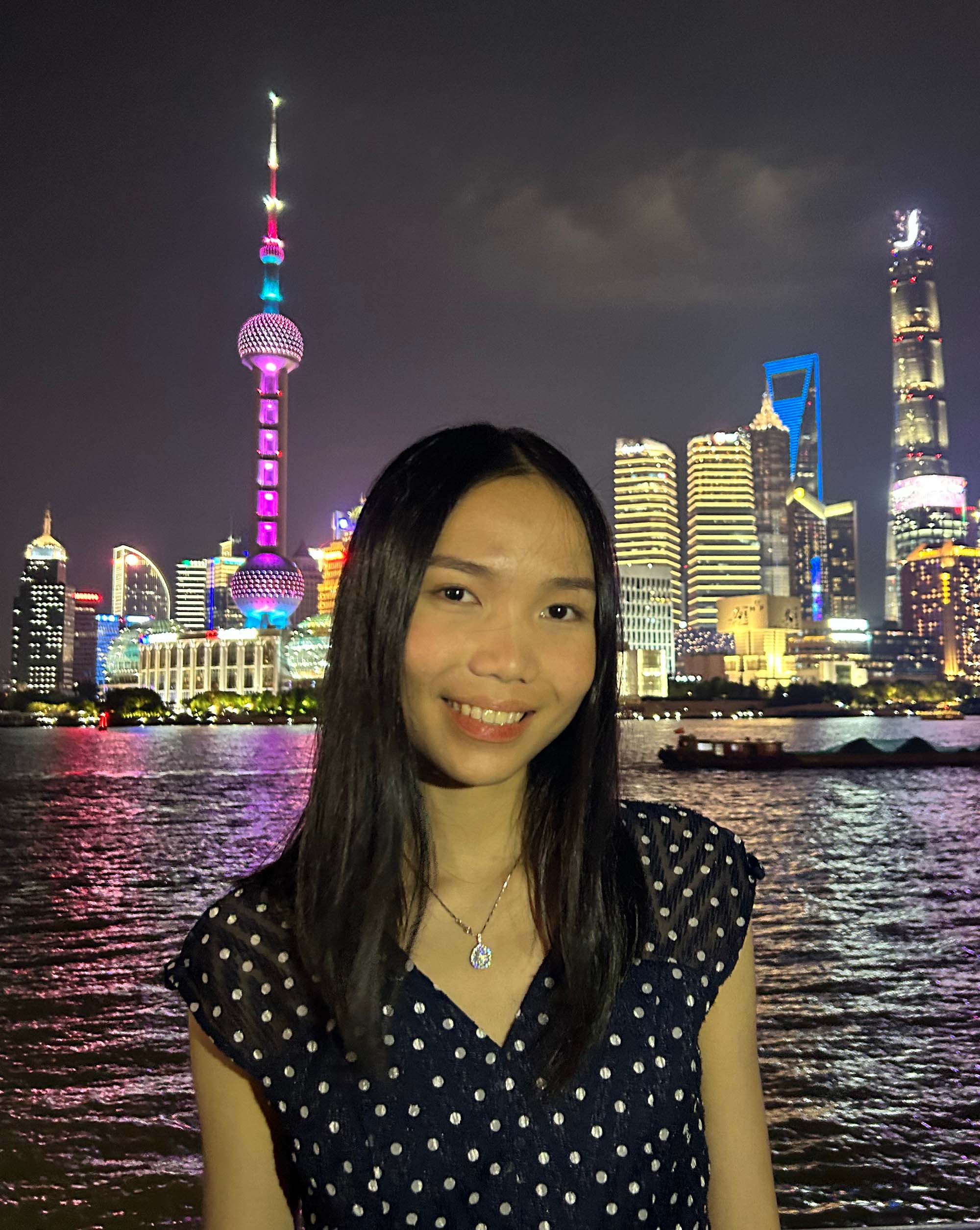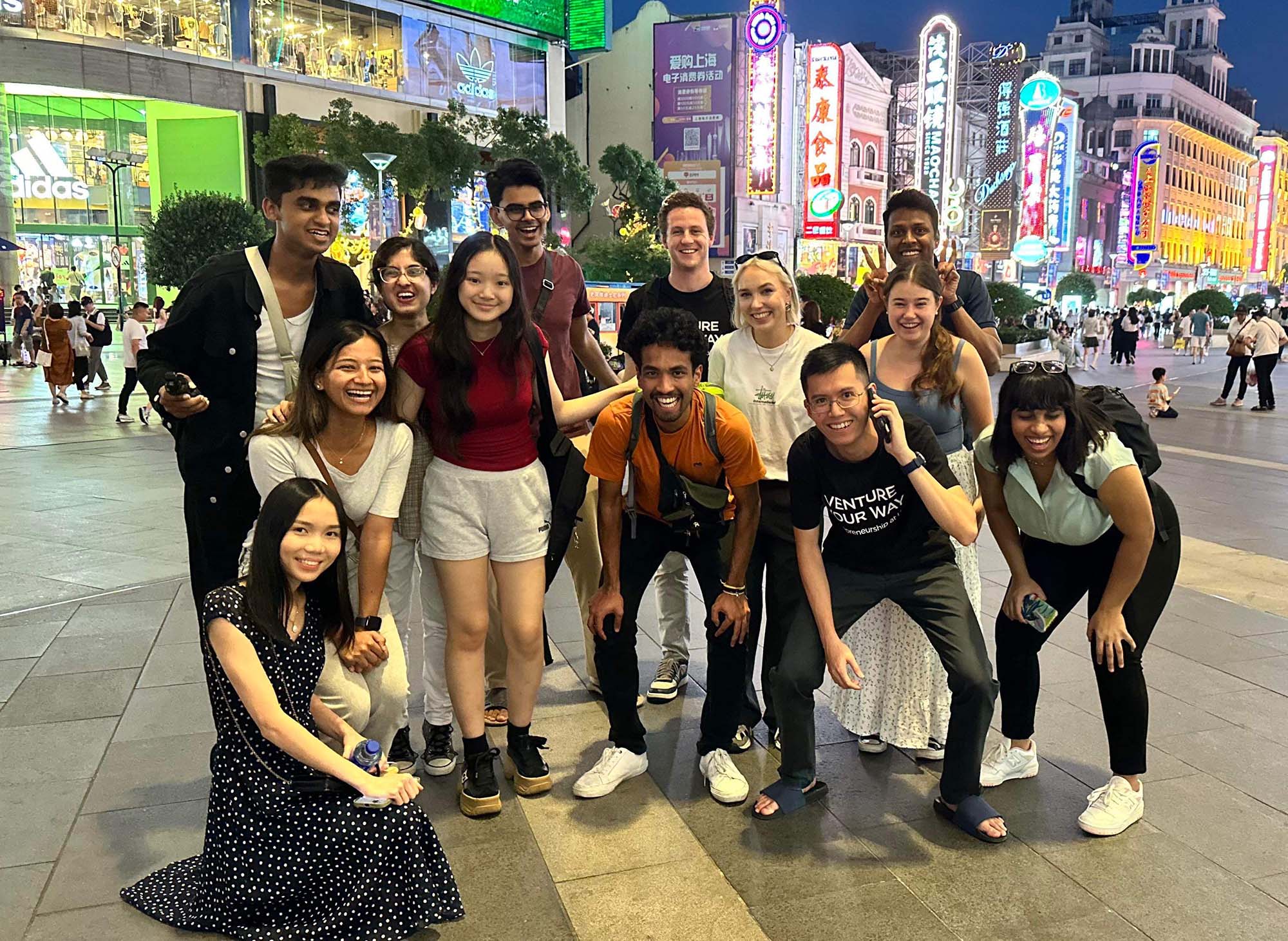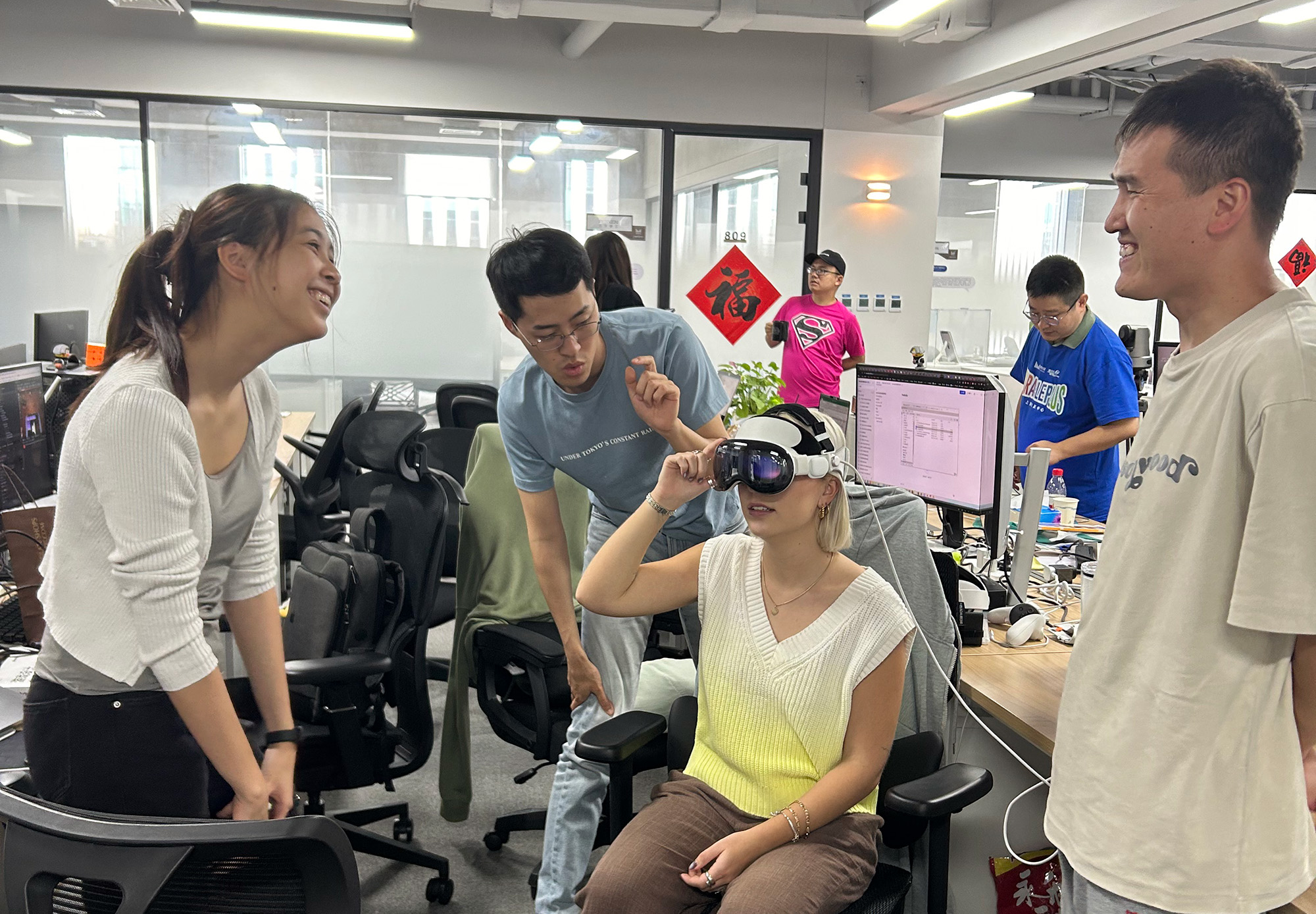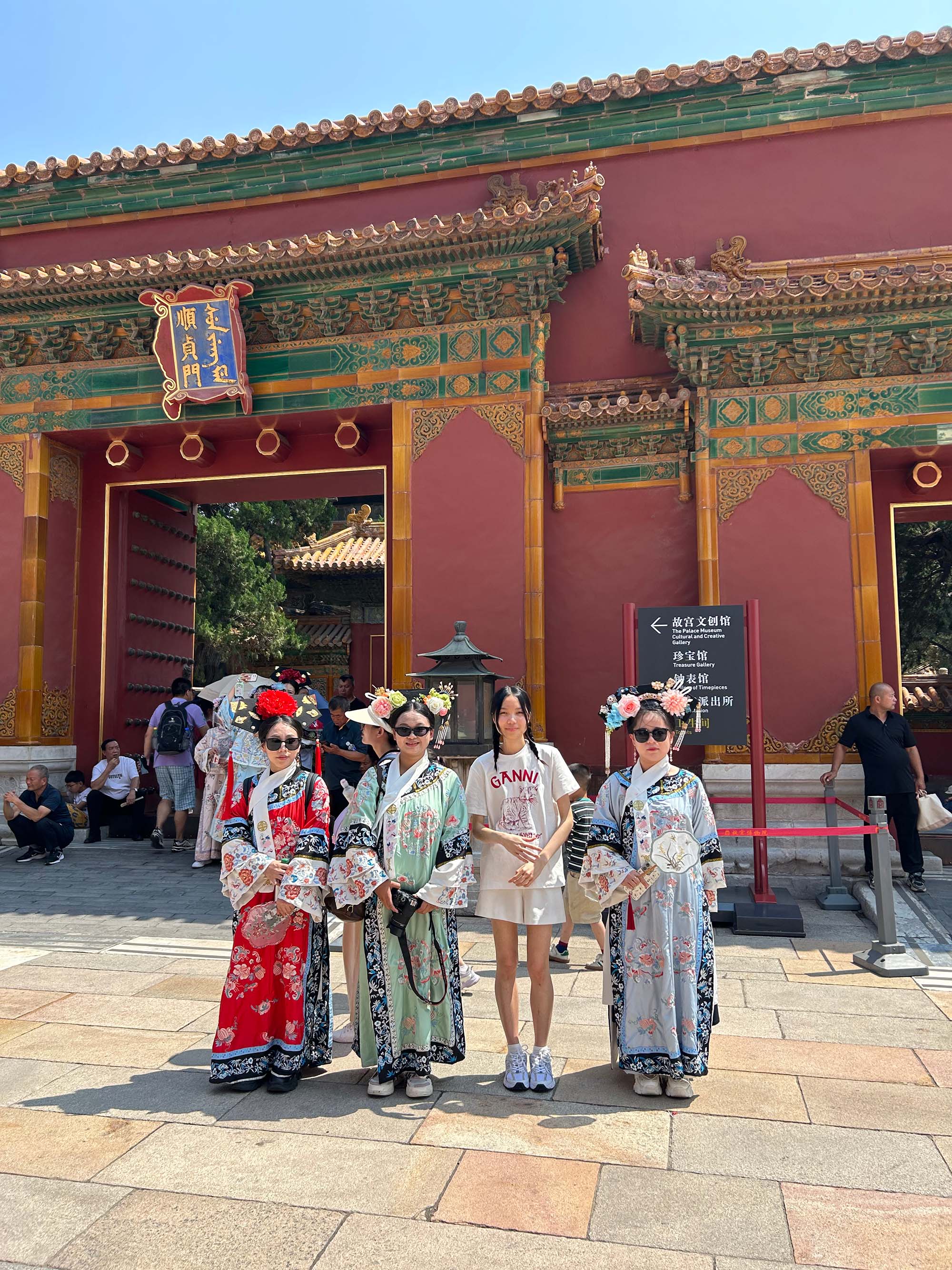My love letter to Shanghai: Reflections on a truly transformative month in the heart of the silicon dragon
Written by Diane Nguyen, Bachelor of Law (Honours) / Bachelor of Economics
It feels so surreal that just shy of a month ago, I arrived in the bustling and almost alien metropolis of Shanghai. From the moment I stepped out of People’s Square station, I was instantly enraptured by the city’s frenetic energy and imposing skyline.
 I distinctly recall the first night exploring down Nanjing Road towards the Bund. With the neoclassical architecture to the west of Huangpu River and a row of glitzy skyscrapers to its east, the Bund offered me a glimpse into Shanghai’s rich history and unique fusion of Eastern and Western influences. As I soaked up the stunning waterfront views, I grew more and more eager to learn more about what made this city one of the most exciting places in the world to live, work and study.
I distinctly recall the first night exploring down Nanjing Road towards the Bund. With the neoclassical architecture to the west of Huangpu River and a row of glitzy skyscrapers to its east, the Bund offered me a glimpse into Shanghai’s rich history and unique fusion of Eastern and Western influences. As I soaked up the stunning waterfront views, I grew more and more eager to learn more about what made this city one of the most exciting places in the world to live, work and study.
As an economics student, I have always been fascinated by China’s radical, almost unrecognisable transformation into a global economic powerhouse. No country has experienced growth on the scale that China has. And from the moment I touched down, it wasn’t hard to see why. The drive to achieve something great is palpable on every floor of every building in Caoheijing Hi-Tech Park. In immersing myself in one of Shanghai’s many dedicated startup hubs, I was able to experience firsthand the pulse of innovation that reverberated through the city. Breakthrough technologies and disruptive ideas were being born every day across every industry, from AI and blockchain to biotechnology and green energy.
But China’s insatiable appetite for innovation didn’t emerge in a purely spontaneous way. Mass innovation is not just beneficial, but vital to Shanghai’s economic agenda. The Chinese have an incredible incentive structure to succeed, largely due to a patchwork of government policies, private and public investment and a burgeoning middle class with increasing purchasing power. The size, accessibility and scale-up capacity of the domestic market alone was huge and unlike anything back home. And I could feel this incredible potential as soon as I stepped out of Pudong Airport and into a sea of EVs with brands and models I had never seen before.

But in an environment geared for innovation, competition is cutthroat. Agility is key. To ‘play by the book’ or rehash strategies proven elsewhere was not going to cut it in an ecosystem moving at maglev speed. If there is a gap to fill and you can’t fill it, someone else quickly will. From talking with the local founders, I quickly realised the entrepreneurial dream we had all been sold was very much marred by the unseen perils of survivorship bias. Even those who had gone on to build empires had suffered from countless past failed ventures. And I wonder if this was the tipping point, the critical mass of the nation’s economic miracle. Just as the Chinese government gave their people a choice 40 years ago when they lifted millions out of poverty, they were now giving the next generation of startup hopefuls the same two options: have a go at making something, or live in poverty.
Before I came to China, I had this view of the country as a risk-averse society driven by Confucian values. But such emphasis on job security and making savings didn’t seem to align with the paths traversed by the entrepreneurs I met. From dropping out of his PHD to pursue a childhood dream of designing VR games to leaving a job at one of the most powerful internet giants to launch their own platform from scratch, the founders here were not afraid to take risks. But they weren’t alone, working makeshift out of their parent’s garage like in Shark Tank Australia. They had the financial safety net of VC giants such as MiraclePlus. In these vast incubators, budding entrepreneurs were not only provided with the space to succeed, but to fail, and try again. Working side by side, they supported each other, united by the desire to build something special.
Coming into the internship, I pictured a hierarchal workplace with long hours. But to my surprise, I found myself in a co-working hub with kittens roaming around and employees taking post-lunch naps. Shanghai, it seemed, was truly embracing a ‘new way’ of working. But that’s not to say that traditional values were becoming lost amongst the younger generations. After all, it was the integration of the Confucian work ethic with capitalism that had propelled the nation’s meteoric rise from the 1980s onwards. And in the Hi-Tech Park, that Confucian dedication to continuous learning and development was more resounding than ever.

In an increasingly interconnected economy, developing a sense of intercultural fluency, especially when it comes to Asian culture is undeniably essential. And even more so for Australians, given our economic dependence on and geographical closeness to the Asia Pacific. Opening our eyes to other cultures opens new perspectives, modes of thinking, and builds bridges in a growing global business scene.
But it wasn’t just work that made this program so special. During my stay, I leapt at every chance to immerse myself in the local culture. From trying exotic street foods such as stinky tofu to classics such as xiaolongbao, every streetcorner we turned on was brimming with new insights. As hectic as it was, I miss the routine of knocking off work at 6pm to hop onto the metro to see where it would take us. With every visit to the ancient temples, local water towns and immersive art districts interwoven through the Shanghainese tapestry, I was able to gain a deeper appreciation of China’s rich heritage and global influence.

I embarked on the Startup Adventure with a vague idea to explore my personal aspirations of working overseas. But I left with so much more. I started the journey with a group of 20 strangers and ended it with a life-long support network. As the weeks passed, I formed unbreakable bonds with my fellow adventurers, with whom I shared my first day anxieties, culture shocks and deepest ruminations on the sleeper train from Shanghai to Beijing. Maybe there was more to success than just coursework and degrees. In a world where AI seems to be percolating through every industry, perhaps the soft skills I had nurtured through this experience would prove to become more important than ever.
Applications for Singapore and Shanghai will open 4 February, closing 3 April. To stay updated, jump on the Ventures Slack channel and 'join our student programs for 2025'.
